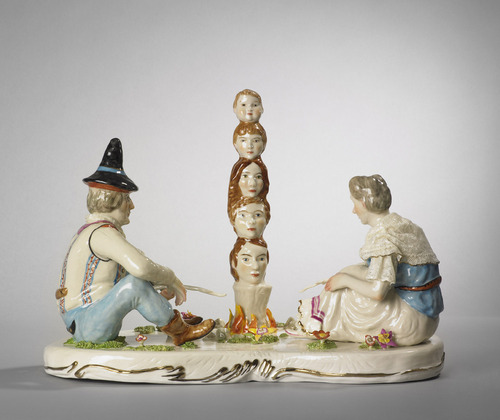
In 2010, Ali Liebegott took a road trip by train. Destination: the Emily Dickinson house. Along the way, she interviewed poets—Dorianne Laux, Marie Howe, CAConrad, and many more. We’ll be reposting the series to celebrate the release of Liebegott’s fourth book, The Summer of Dead Birds.
I first discovered Maggie Dubris in 1998 when a friend gave me her 59-page prose poem, Willie World, largely drawn from her experience being a 911 paramedic in New York City. The slim chapbook, with cover art from David Wojnarowicz, an x-ray of an anatomical heart with an arrow through it, became an instant favorite of mine. Dubris later published Skels (Soft Skull), Weep Not, My Wanton (Black Sparrow) and most recently In the Dust Zone (Centre-Ville Books) illustrated by Scott Gillis. We spoke in her East Village apartment.
—Ali Liebegott
THE BELIEVER: I want to talk to you about your sign on the door of the apartment coming in. Why is this the Ezra Pound Apartment Complex?
MAGGIE DUBRIS: Years ago me and my friend, the poet Elinor Nauen, and my friend Rachel, went to Ocean Beach, and there was someone selling signs like, “The Hansen’s House,” it was so suburban and I thought we should give our apartment building a name. We thought, well who was sort of crazy and might’ve lived in our building, who else? Ezra Pound.
BLVR: That’s so excellent. I love New York so much. What is the city’s effect on you as a writer?
MD: It’s been huge for me because I didn’t go to high school here. I moved here right after and I had this idea in my head—I wanna be a New York poet. That was my total goal. I thought I was going to make a living as a New York poet somehow (laughs) but at that time you didn’t need that much money, it was the 70’s—you could move in and if you couldn’t pay the rent you just got another apartment. They didn’t ask for a bank account they just wanted the rent for a month or two and then you got your new apartment and it was eighty bucks a month so I moved here.
BLVR: Where did you move from?
MD: Michigan. But New York is really my home. I came here and did what I dreamed of, which was to meet Ted Berrigan and be a poet but then, of course, I discovered you couldn’t make money being a poet. So I had to get a job and such. It had a huge impact. I feel like I pretty much grew up here and grew up on the ambulance and grew up...
You have reached your article limit
Sign up for a digital subscription and continue reading all new issues, plus our entire archives, for just $1.50/month.
Already a subscriber? Sign in




